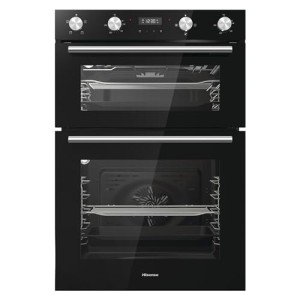10 Sites To Help Become An Expert In Bulit In Oven
The Comprehensive Guide to Built-in Ovens: Features, Benefits, and FAQs
Built-in ovens have become a staple in modern kitchens, supplying convenience, style, and effectiveness. Unlike standard freestanding ovens, built-in designs are created to incorporate effortlessly into cabinetry, thus raising both the function and aesthetics of kitchen spaces. This short article dives deep into the world of built-in ovens, discussing their functions, advantages, installation factors to consider, and answers to frequently asked concerns.
What is a Built-in Oven?
A built-in oven is an appliance that is developed to be installed straight into a wall or kitchen cabinets. This installation alternative offers property owners the capability to produce a customized cooking space, maximizing readily available kitchen square footage while providing a smooth, professional look.
Secret Features of Built-in Ovens
Built-in ovens are loaded with features that cater to a range of cooking styles and preferences. Secret functions consist of:
Feature
Description
Variety of Cooking Modes
Choices such as convection baking, broiling, and self-cleaning modes to boost culinary versatility.
Size and Configuration
Available in various sizes and heights to fit specific kitchen layouts, ranging from compact to larger systems.
Style Options
Visual choices consisting of stainless-steel, black stainless, and customized panels to match any kitchen decoration.
Smart Technology
Numerous built-in ovens come equipped with Wi-Fi capabilities, making it possible for remote tracking and control through mobile phone apps.
Multi-Functionality
Some models integrate oven and microwave or consist of steam functions to develop varied cooking choices.
Benefits of Built-in Ovens
The advantages of incorporating a built-in oven into a kitchen style extend beyond simple aesthetics. Here are some noteworthy advantages:
1. Area Efficiency
Built-in ovens complimentary up countertop area by eliminating the requirement for a freestanding unit. Their integration into cabinets enables a cleaner kitchen layout.
2. Improved Visual Appeal
With streamlined styles and customizable surfaces, built-in ovens enhance the total appearance of the kitchen, adding to a more cohesive style.
3. Improved Cooking Performance
Many built-in designs use advanced cooking innovations, such as convection cooking, which flows hot air for even cooking, lowering cooking times and improving results.
4. Convenience and Accessibility
Built-in ovens are typically placed at eye level, making it simpler to examine on cooking progress, decreasing the need to bend down, and boosting security.
5. Increased Home Value
A well-designed kitchen with built-in appliances can considerably increase a home's worth, making it more appealing to potential purchasers.
Setup Considerations
When selecting and setting up a built-in oven, there are several factors to consider:
- Kitchen Layout: It's necessary to prepare how the oven will suit the existing space, consisting of cabinet heights and clearance requirements.
- Electrical and Ventilation Needs: Built-in ovens typically require particular electrical setups; make sure that the kitchen complies with regional electrical guidelines.
- Expert Installation: Due to the intricacy of setup, employing a professional can ensure that the oven is set up securely and properly.
Types of Built-in Ovens
Built-in ovens come in various types, each matched for different cooking styles. Below are a few of the most typical:
- Single Oven: A traditional option for daily cooking requirements, supplying adaptability for baking, roasting, and broiling.
- Double Oven: Offers 2 different cooking compartments, permitting synchronised preparation of multiple meals— a preferred for large households and those who entertain frequently.
- Wall Oven: These ovens are totally integrated into the wall and be available in various styles, including steam ovens and combination microwave ovens.
Popular Brands of Built-in Ovens
Numerous credible brand names provide top quality built-in ovens, understood for their dependability and variety of features:
- Bosch: Known for streamlined style and advanced cooking technology.
- KitchenAid: Offers imaginative features and multi-functional designs.
- Samsung: Integrates clever technology with a contemporary visual.
- GE Appliances: Provides a variety of choices for various budgets.
Often Asked Questions (FAQs)
1. How do I pick the ideal built-in oven for my kitchen?
When choosing a built-in oven, think about the size of your kitchen, your cooking style and frequency, the readily available budget plan, and any essential electrical outlets or ventilation choices.
2. Are built-in ovens energy efficient?
Numerous built-in ovens include energy-efficient technologies, such as much better insulation and precise temperature controls, which can lead to less energy intake compared to conventional ovens.
3. Can I set up a built-in oven myself?
While some homeowners may try DIY installation, hiring an expert is highly suggested to guarantee safe and appropriate installation, particularly worrying electrical connections.
4. What upkeep do built-in ovens need?
Routine upkeep consists of cleaning the oven interior and exterior, checking the seals for integrity, and making sure that any smart functions or controls are updated as required.
5. Do built-in ovens included service warranties?
Yes, most reliable brands provide service warranties on their built-in ovens, typically covering parts and labor for a specified duration. Make www.ovensandhobs.uk to check the details before acquiring.
Built-in ovens use a blend of design, efficiency, and functionality, making them a popular choice for both modern and standard kitchen areas alike. With thoughtful consideration of features, installation, and upkeep, house owners can improve their cooking experience while including substantial value to their residential or commercial properties. Whether going with a single or double oven, the investment in a built-in design promises to change the culinary landscape of any home.
